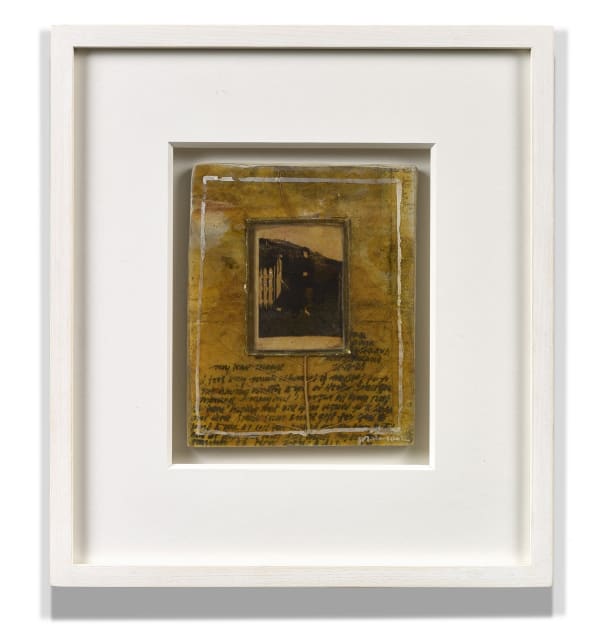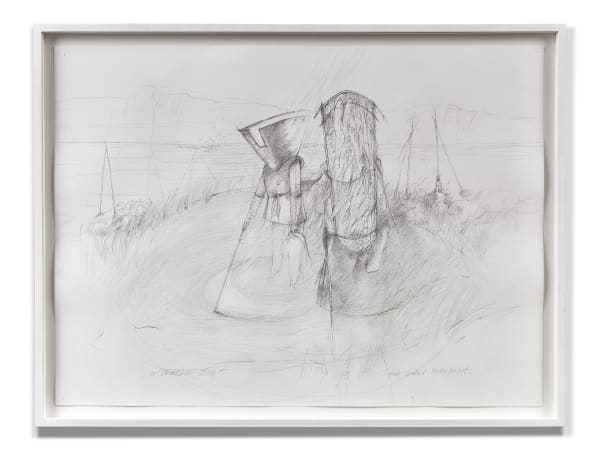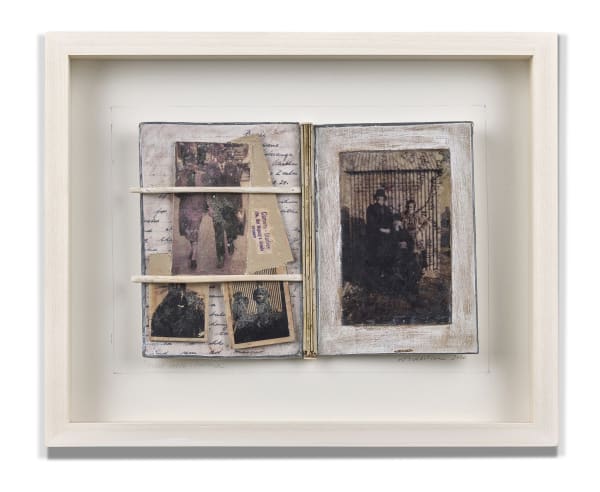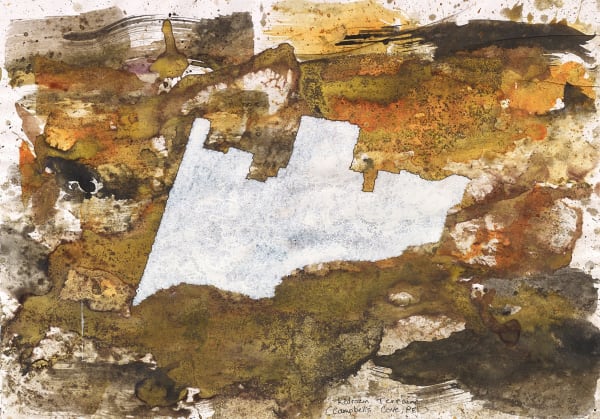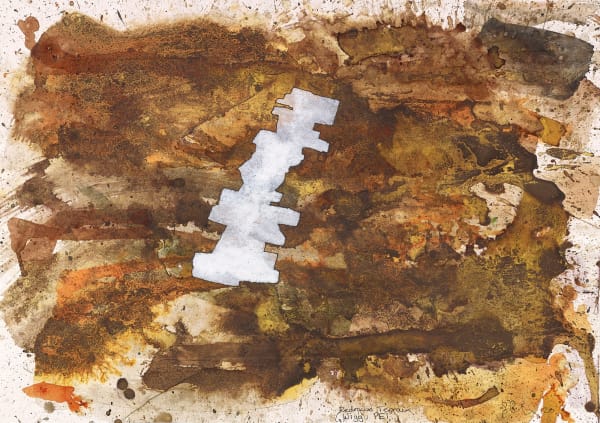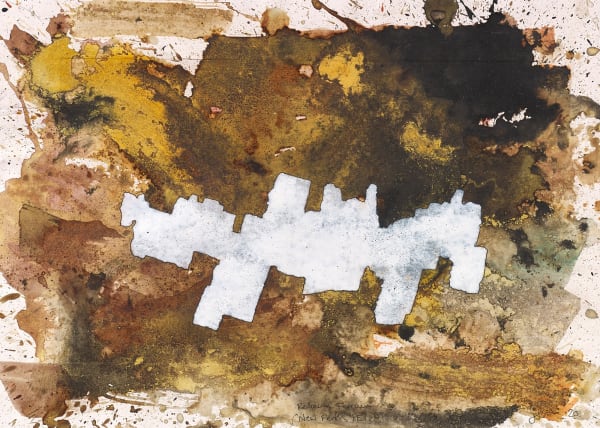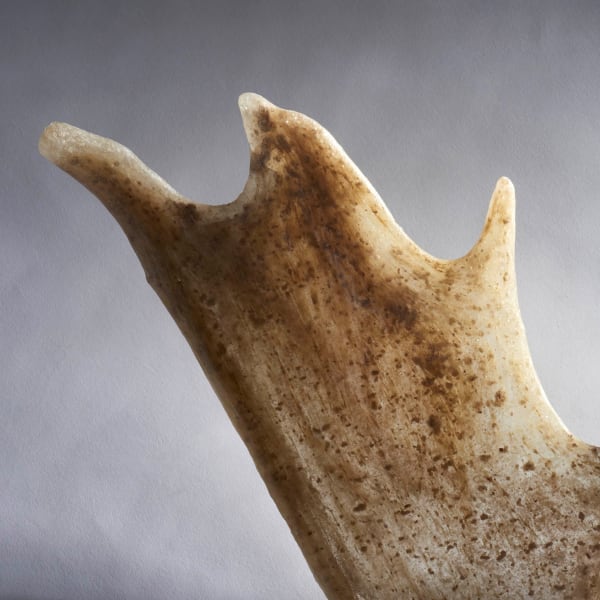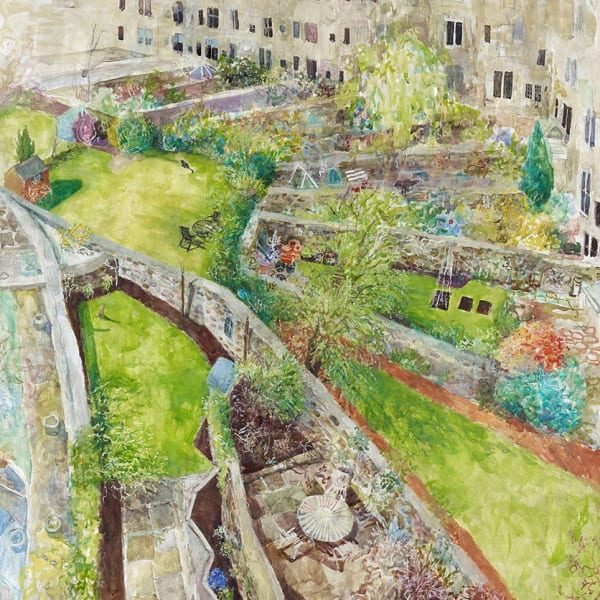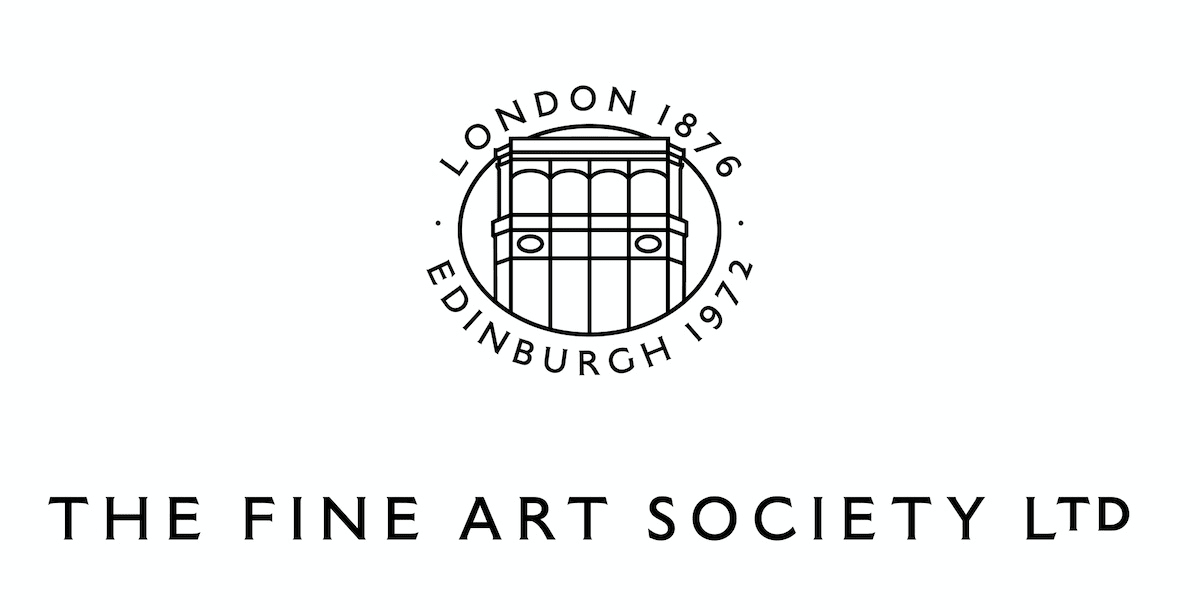OWNERS OF THE SOIL: WILL MACLEAN & SHAUN FRASER
-
-
Owners of the soil sees artists Will Maclean and Shaun Fraser examine ties between land, identity and ownership through the early Scottish diaspora’s dual identity of colonised and coloniser. Taking as his subject the Scots who arrived in Nova Scotia, as it was to become known, Fraser looks at the land from which First Nations Mi’kmaq people were displaced. He explores the attachment to place and questions to whom these areas belong. Maclean takes the very personal histories of his antecedents and their communities, forced to leave and find new lives.
-

Owners of the Soil: Will Maclean and Shaun Fraser, Edinburgh, 29 July - 28 August
-
-

Will Maclean RSA, Incident at Mazuma (2), 2020
signed, titled and dated 2020; inscribed 'For Alexander Maclean 1860-1925' on artist's label verso
pencil on paper | 56 x 75 cm
-

Shaun Fraser, Ach An Cuan The Atlantic Series (Part 1), 2014
cast glass with metal oxide and Nova Scotian soil, 75cm x 75cm x 35cm
Photo credit: Ewen Weatherspoon
-
-

Will Maclean RSA, Homestead Auckland, 2020
For Alexander Campbell; signed, titled and dated 2020; signed and titled on artist's label verso
found objects and mixed media on board | 37 x 46 x 5 cm -
CLICK HERE TO SIGN UP TO RECEIVE THE FINE ART SOCIETY'S JOURNAL

